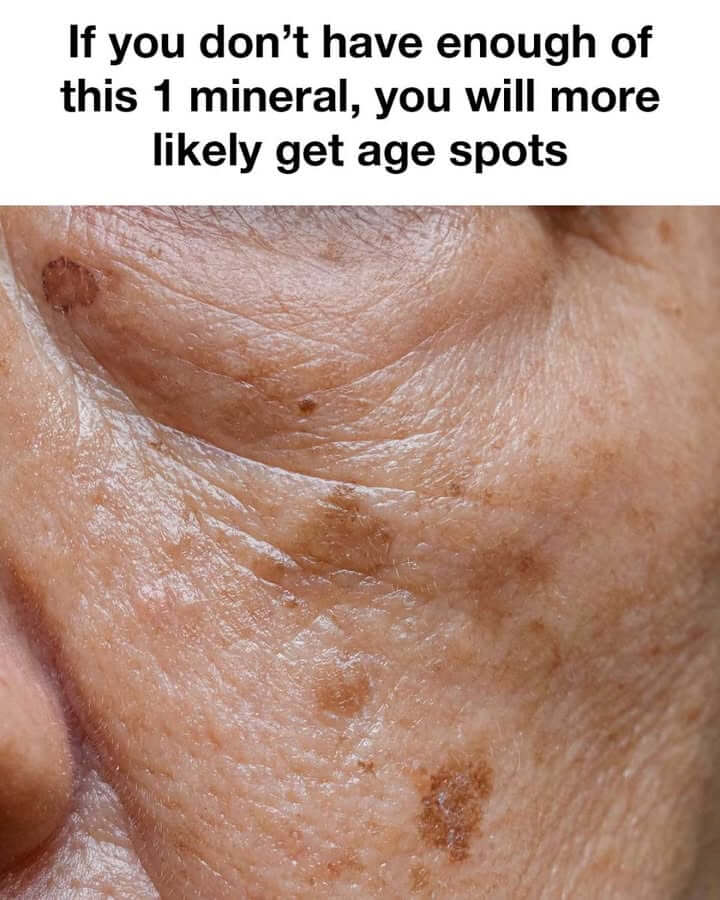Age spots—also referred to as liver spots or solar lentigines—are flat discolorations that range from brown to black and typically appear on areas of the skin frequently exposed to the sun. While they are more common in individuals over the age of 50, younger people who spend considerable time outdoors are also susceptible. These spots form due to an overproduction of melanin, the pigment responsible for skin color. Several factors contribute to their development, including frequent sun exposure, aging, and genetic tendencies.
How Minerals Support Skin Health
Minerals are essential for keeping skin healthy and resilient. They play critical roles in cellular regeneration, protecting the skin from oxidative damage, and preserving its structural integrity. Minerals such as zinc, copper, and selenium are particularly valuable due to their roles in defense against environmental damage and in supporting the skin’s natural healing process.
The Role of Selenium in the Body
Selenium is a trace element that the body needs in small amounts to function optimally. It acts as a strong antioxidant, helping to protect cells—including skin cells—from oxidative stress caused by free radicals. Beyond that, selenium is vital for proper immune system performance and supports thyroid hormone production and metabolism.
How Low Selenium Levels Can Lead to Age Spots
When selenium is deficient in the body, it increases susceptibility to oxidative damage—one of the leading causes of age spots. Inadequate selenium levels reduce the skin’s ability to defend itself against harmful UV rays and environmental stressors, potentially triggering excess melanin production and the formation of dark spots. Ensuring you get enough selenium can enhance your skin’s defenses and contribute to a healthier appearance.
Research Linking Selenium to Skin Protection
Scientific studies have shown that selenium helps guard the skin against damage from ultraviolet (UV) rays and may even reduce the likelihood of developing certain skin cancers. When combined with other antioxidants, selenium has also been found to boost skin elasticity and reduce signs of aging, including pigmentation and spots. These findings highlight selenium’s role in preserving youthful skin and preventing damage.
Common Signs of Selenium Deficiency
A lack of selenium in the body can present in various ways, such as fatigue, weakened muscles, or reduced immune function. Regarding skin health, symptoms might include heightened sensitivity to sun exposure, delayed healing of wounds, and increased likelihood of age spots. Identifying and addressing these signs early can prevent further skin and health complications.
Meeting Your Selenium Needs
Maintaining sufficient selenium intake involves following a balanced diet that includes selenium-rich foods. For most adults, the recommended daily intake is about 55 micrograms. Monitoring your nutrition and considering supplements when necessary can help maintain appropriate selenium levels.
Foods High in Selenium
Some of the best dietary sources of selenium include Brazil nuts, seafood like tuna and sardines, and organ meats such as liver. Other good options are eggs, sunflower seeds, and whole grains. Adding these items to your meals regularly can help ensure you’re getting enough of this vital mineral.
Using Selenium Supplements Safely
Selenium supplements can be helpful for those with a diagnosed deficiency, but moderation is key. Taking too much selenium may lead to side effects like digestive issues, hair thinning, or even nerve problems. It’s important to speak with a healthcare provider before beginning any supplement regimen to determine the right dosage and avoid complications.
Other Ways to Prevent Age Spots
Besides maintaining optimal selenium intake, there are additional ways to protect against age spots. Daily use of sunscreen, wearing protective clothing, and avoiding prolonged sun exposure—especially during peak hours—are highly effective. A nutrient-rich diet full of antioxidants, a consistent skincare routine, and staying hydrated all contribute to skin vitality and the prevention of sun-induced discoloration.
Final Thoughts: Selenium’s Impact on Skin Vitality
Selenium plays an integral role in shielding the skin from oxidative stress and in reducing the formation of age spots. Whether through food or supplements, maintaining adequate levels of this important mineral can significantly enhance skin health and delay visible signs of aging. By incorporating selenium into your daily routine—along with other healthy habits—you can support clear, youthful-looking skin and lower the risk of developing age-related pigmentation.
